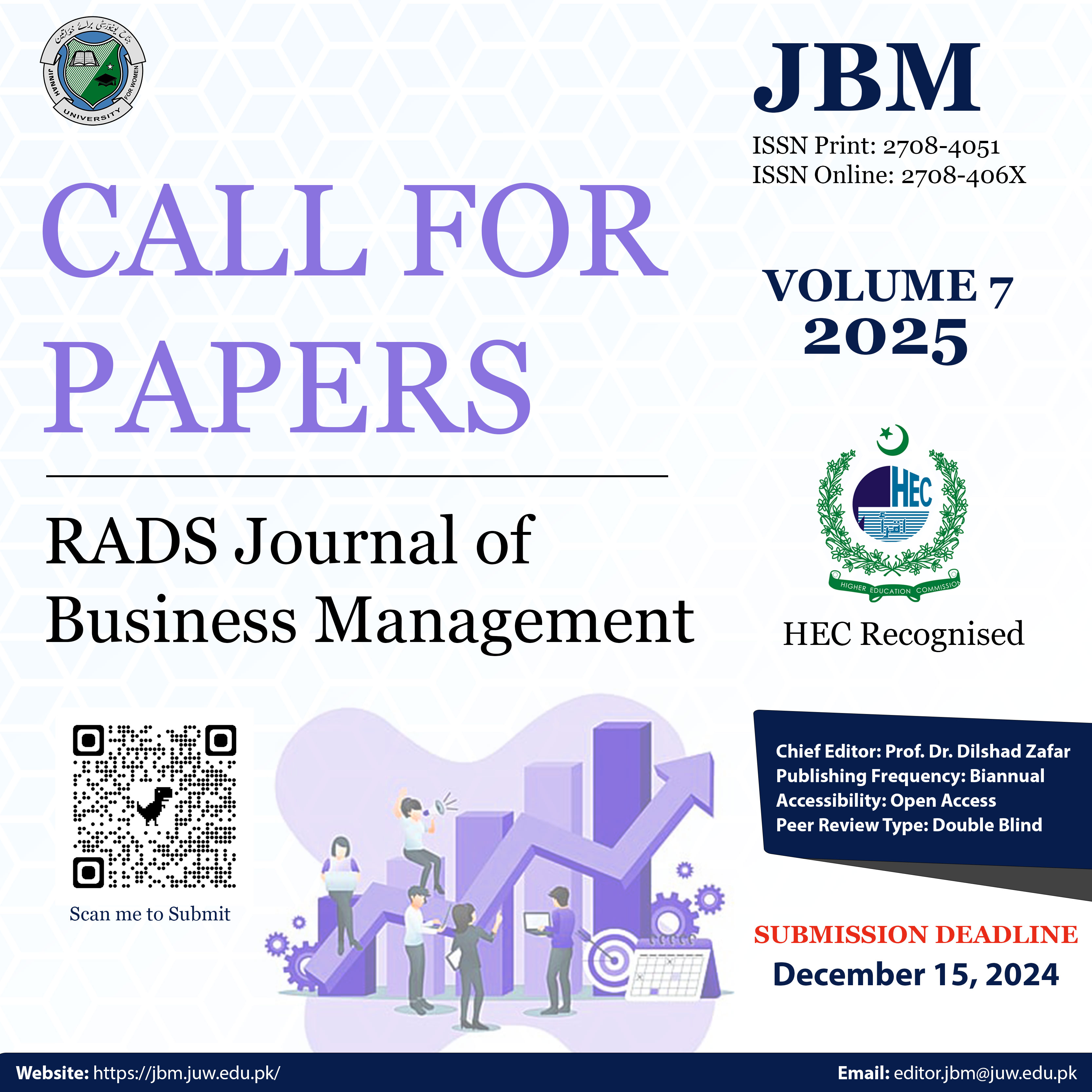Impact of Macroeconomic Variables on Deforestation in Pakistan
Abstract
The main aim of this research is to identify the indirect drivers of deforestation to macroeconomic factors such as unemployment, inflation, and the development of Pakistan's population (1991-2016). The long-term relationship between the variables is determined using ARDL. With rapid population growth, rising unemployment, and double-digit inflation, Pakistan has a declining number of forest areas each year, increasing the pressure on land resources. As a result of this enormous rate of deforestation, financial damage such as floods, drought, less rainfall, rising temperatures, air pollution, damage to the atmosphere, and all human organisms is caused by climate change. This research shows the need to quantify the economic costs of deforestation, to increase the rate curve of forests from a declining trend by regulating macroeconomic factors. The outcome supports long-term and short-term inter-factor co-integration.
The author retains the copyright and grants the right of first publication to the journal.





